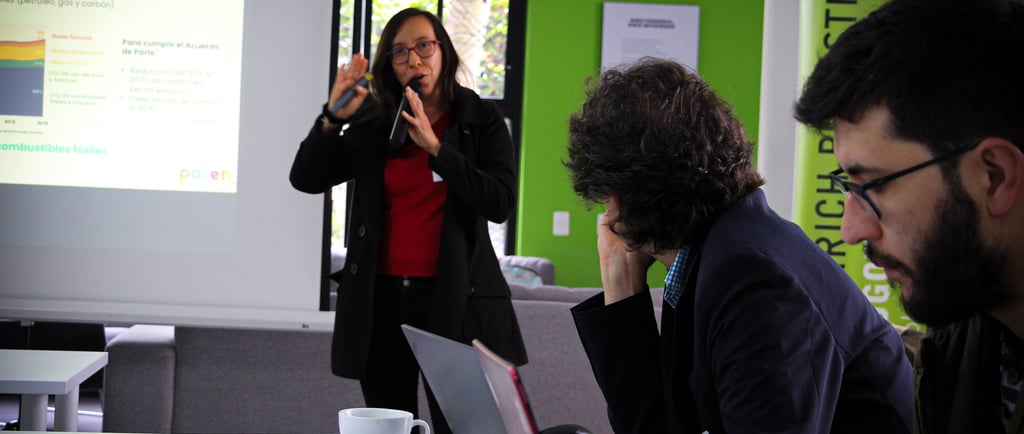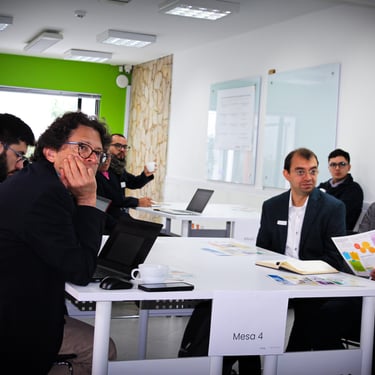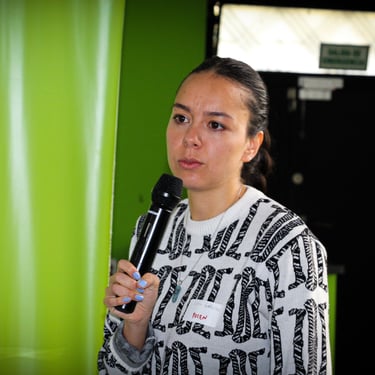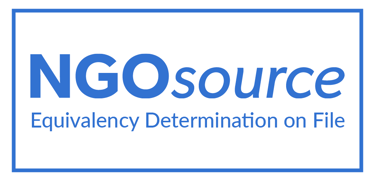Coal sector and the update of the emission standard for stationary sources: A step towards environmental justice


On October 10th, POLEN TJ’s team, in collaboration with the Heinrich Böll Foundation, Bogota, Colombia, organized the workshop “Coal sector in the update of the emissions standard for stationary sources”. This space brought together various actors from the mining, energy and environmental sectors to reflect on the progress and proposals in Colombia’s emissions regulation, with the aim of contributing to the update of Resolution 909/2008, the standard that regulates stationary sources.
Urgency in the mitigation of atmospheric pollutants
This workshop responds to the urgency of adopting measures to mitigate emissions of polluting gases, thus reducing the impact on the health of communities close to industrial sources.
Although some of these emissions are also climate pollutants, the main focus of the regulation is the protection of public health. Therefore, the workshop prioritized the analysis of two specific coal sub-sectors: thermal power plants and coke production plants, whose effects on air quality require appropriate regulatory intervention. During the workshop, crucial aspects of the transition to a more sustainable energy matrix and the associated challenges for fossil fuel-dependent sectors were addressed.
You should listen: Podcast: The challenge of monitoring, reporting and verifying GHG emissions
The need to move forward in updating Resolution 909/2008, which establishes emission limits for fixed sources of pollution was the main focus of the workshop. Although this regulation has been fundamental, technological advances and new environmental demands show the urgency to review and adapt it to new contexts.
POLEN TJ led a technical proposal to guide the regulatory reform on the two coal sub-sectors. This work comprises both a detailed analysis of emissions from both of them and a regulatory comparison with 12 international jurisdictions, including the European Union. The Heinrich Böll Foundation has been a key partner in this effort, supporting funding and organizing spaces for discussion and reflection.
Environmental justice as the focus of the update
An essential aspect of the workshop was the environmental justice approach, framed within the Just Energy Transition. From this perspective, the updating of the standard must take into account the experiences of communities affected by coal extraction, particularly those that have faced serious impacts on their health and the environment.
María Elena Huertas, lead researcher of POLEN TJ, stressed that the update must consider the communities affected by coal extractive activities, especially those that have suffered negative impacts on public health and environmental degradation. “We cannot talk about a just energy transition if we do not recognize the damages already caused and if we do not incorporate reparation measures for the affected communities”, she said.
One of the challenges identified is to implement stricter emissions limits without generating a negative economic impact on regions dependent on the coal sector. María Elena emphasized that the transition to renewable energies must be accompanied by economic diversification policies that allow these regions to reduce their dependence on coal and find new development opportunities.
Gender perspective: a key dimension
Another key aspect discussed was the gender perspective in updating the standard. The workshop provided an in-depth reflection on how women are often the most affected by the impacts of climate change and polluting emissions. Sonia Sánchez, member of POLEN TJ, explained that, in many communities affected by coal mining, women assume key roles in the informal economy and in caretaking roles, thus, disproportionately exposing themselves to the consequences of environmental degradation.
"Climate change is not gender neutral, and any policy around energy transition must take this into account. Women, especially in rural and mining areas, are the most vulnerable to the effects of pollution and energy poverty," commented Sonia.
This approach raises the need to design specific policies that protect and strengthen the role of women in areas affected by the energy transition, ensuring that they participate in decision-making on technologies and regulations that impact their lives.
Technical and regulatory analysis
A critical point of the analysis conducted was to identify that Colombian regulations on sulfur dioxide (SO₂) and nitrogen oxides (NOₓ) emissions are significantly less stringent than those of the countries analyzed. Additionally, the need to incorporate other pollutants such as mercury in the update of the emissions standard became evident.
It was proposed that the update of the standard include stricter limits and the mandatory implementation of emission control technologies. This includes continuous emissions monitoring systems (CEMS), which allow a higher time resolution tracking of pollutants emitted into the atmosphere.
You may be interested in: Methodologies for the estimation of emissions and monitoring of atmospheric gases in the coal sector.
Challenges and barriers to implementation
The workshop generated a rich discussion on the barriers to the implementation of the proposal for a new regulation. Representatives from the private sector, particularly from coking companies, expressed concern about the costs associated with the adoption of new technologies and the potential loss of jobs resulting from stricter limits.
While it is essential to move towards stricter regulation, it is necessary for the public sector to accompany this process with incentives for technological innovation and modernization. Small businesses cannot be required to adopt state-of-the-art emission control systems without providing some form of financial or technical support to facilitate their implementation.
It is important to highlight that POLEN TJ’s proposal includes a phased transition approach which allows companies to adopt the new standards progressively. However, the priority must be public health and environmental protection. The public sector should play an active role in facilitating this transition through policies to support affected regions.
The workshop concluded with a call for collaboration among all stakeholders: public sector, private sector and civil society organizations. The updating of the emissions standard for stationary sources represents a technical, economic and social challenge, but also an opportunity to move towards a just energy transition that guarantees not only the reduction of emissions, but also the protection of communities and workers who depend on the coal sector.
This space for dialogue and collective construction was an important step towards updating a regulation that responds to environmental demands and the demands of social justice and equity.
You may be interested in: Update of the emissions standard for stationary sources in Colombia.







